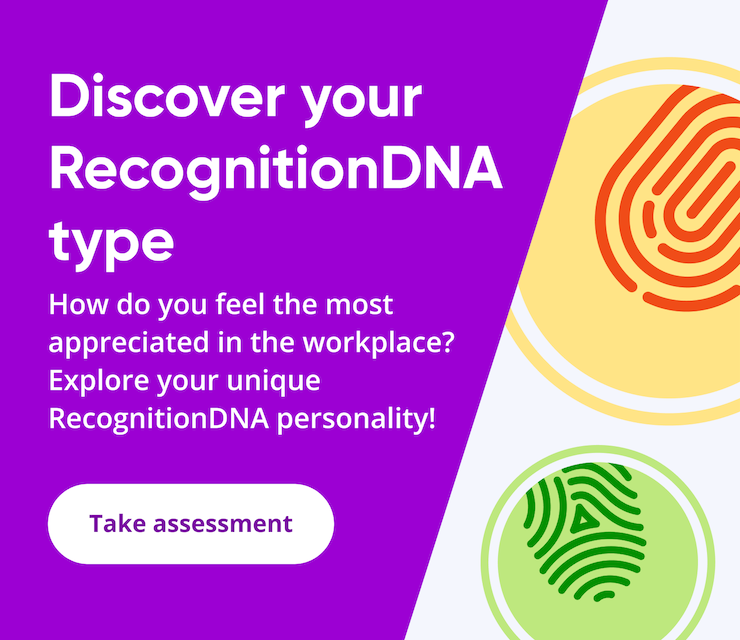
Amidst a backdrop of a global pandemic, political & social unrest, and a massive shift in how we work, companies and their employees have navigated some turmoil waters throughout the past few years.
Those waters have ushered in an era of employee care where companies are beginning to explore culture as a service and think about the employee/employer relationship in a truly meaningful manner.
The importance of employee engagement to a company’s success is not a new concept by any means, but it has experienced a recent revitalization for good reason. With so many benefits of employee engagement, it’s no surprise that companies are prioritizing their employee engagement strategies & efforts.
“Teamwork is the ability to work together toward a common vision, the ability to direct individual accomplishments toward organizational objectives. It is the fuel that allows common people to attain uncommon results.” – Andrew Carnegie
When you boil it down, employee engagement is essentially the extent to which an employee feels personally invested in their work and aligned with the overall company vision. Engaged employees not only feel connected to the organizational goals, but they believe in them. This common belief and vision can lead to some pretty amazing results and benefits.
Before we explore some of those benefits, let’s take a peek at what employee engagement looks like.
What do engaged employees look like?
Engaged employees:
1 Feel connected to the work they do & take pride in their performance.
2 Believe in the company’s vision & goals and clearly understand how they contribute to them.
3 Are loyal because they feel a sense of belonging & community.
4 Have well-defined roles allowing them to take ownership of their work.
5 Invest in their personal and professional growth so that they can continually learn & sharpen their skills.
6 Feel empowered and appreciated by their employer because their hard work is consistently recognized and rewarded.
Employee Engagement – In-Office vs. Remote

Whether your employees are working in-office, remotely, or on a hybrid/flex model, employee engagement is critical to individual, team, and company success.
If most of your team is working remotely, consider why corporate gifting is important to employees & find the perfect corporate gift box for your remote team. A small token of appreciation can go a long way in keeping your employees motivated and engaged. Alternatively, if your team is back in the office, host a fun in-person happy hour!
At this point, the virtual happy hours just don’t quite hold the same excitement & opportunity to organically connect with your coworkers as a more traditional team happy hour outing does.
Regardless of your employees’ work setup, it’s crucial to communicate frequently & transparently, recognize & reward your employees, and foster a sense of community to keep employee engagement levels high.
Benefits of Employee Engagement
Benefit #1: Increases Employee Productivity
“Productivity is never an accident. It is always the result of a commitment to excellence, intelligent planning, and focused effort.” – Paul J. Meyer
One would assume that highly engaged employees are more likely than disengaged employees to have higher productivity in the workplace.

A Gallup study backs up that assumption and found that when comparing companies in the top quartile of employee engagement against those in the bottom quartile, there was a 14% increase in productivity. Engaged employees are generally more productive because they’re committed to excellence & personally invested in successful business outcomes.
Why this benefit matters: Between client expectations, company deadlines, and key launches, it’s critical that your employees are highly productive & able to rise to any challenge. Engaged employees confidently tackle those challenges and find efficiencies along the way.
Benefit #2: Improves Retention Rates
“If one’s work environment isn’t able to provide individuals with meaning, people will seek out one that does.” – Marc Kielburger
A major benefit of high employee engagement is that it improves retention rates and lowers absenteeism.
A major reason employees leave their jobs is due to a lack of connection or purpose in their current role. According to Quantum Workplace, only 5% of highly engaged employees are looking or applying for jobs compared to 34% of not highly engaged employees. Additionally, 90% of highly engaged employees intend to remain at their current organization in the next year compared to a much lower 47% of disengaged employees.
Why this benefit matters: Higher engagement results in higher employee retention, meaning key talent & top performers at your company are staying longer & contributing to your company’s success in a meaningful way.
Benefit #3: Increases Revenue
“There are only three measurements that tell you nearly everything you need to know about your organization’s overall performance: employee engagement, customer satisfaction, and cash flow.” – Jack Welch
Employee engagement, customer happiness, and profit are all critical components to the success of any company.

They are also very much interrelated and directly affect one another. Gallup found that companies with highly engaged teams experienced 23% higher profitability than companies in the bottom quartile of engagement, depicting just how significantly engagement can influence company profits & business outcomes. Engaged employees not only help increase revenue but also help decrease staffing costs stemming from high employee turnover rates.
Why this benefit matters: Engaged employees increasing revenue is beneficial to any company’s success & margins. The bottom line matters. Profitability matters. Highly engaged employees recognize this & actively contribute to a business’s financial goals.
Benefit #4: Happy Employees, Happier Customers
“Highly engaged employees make the customer experience. Disengaged employees break it.” – Timothy R. Clark
We’ve all been on the receiving end of some not-so-great customer experiences, but on the flip side, I’m sure you can recall an instance where an employee went above and beyond to ensure you had a positive experience as a customer.
Chances are you still have a positive association with that brand because of that interaction. In Gallup’s study, they discovered that customer loyalty/engagement was 10% higher in engaged business units compared to disengaged ones. This shouldn’t come as a surprise since engaged employees tend to have higher levels of job satisfaction & happiness which directly translates into how they interact with customers and clients.
Why this benefit matters: Consider this benefit reflective of a trickle-down effect. How the employer treats their employee directly affects how those employees treat their customers. The more engaged & appreciated your employees feel, the more positive experiences your customers & clients will have.
Benefit #5: Better Quality of Work
“The only way to do great work is to love what you do.” – Steve Jobs
A beneficial employee engagement outcome is the production and proliferation of high-quality work.
If you don’t love what you do and you’re not feeling engaged with your work, your work output won’t be your best work. Engaged employees are passionate about what they do, how they do it, and the work they are producing which inevitably produces higher caliber work. Because engaged employees are confident in their skills and clearly see their role within the larger company culture, they can think about their work strategically and produce meaningful, thoughtful content.
Why this benefit matters: If your employee doesn’t feel engaged with the work they’re doing, there’s a rather slim chance that they’re going to produce high-quality work. Engaged employees have a vested interest in their work and therefore will strive harder to deliver quality outputs.
Benefit #6: More Innovation
“The difficulty lies not so much in developing new ideas as in escaping from old ones.” – John Maynard Keynes
Most change or innovation is initially met with some resistance or a team member stating, ‘But, this is how we’ve always done it.’
Engaged employees aren’t scared to break away from the norm and think creatively about improving existing processes or implementing new ideas. Disengaged employees tend to be comfortable with the status quo and may not care enough to step out of the weeds and think more holistically about the business. Alternatively, engaged employees are solution-oriented and because they understand the larger company vision will work to find innovative ways to achieve it.
Why this benefit matters: A company that doesn’t innovate will soon find itself obsolete, especially in this fast-moving, ever-changing workplace climate. Engaged employees not only embrace innovation but are key contributors to it as well.
Benefit #7: Increased Employee Loyalty
“Employee loyalty begins with employer loyalty. Your employees should know that if they do the job they were hired to do with a reasonable amount of competence and efficiency, you will support them.” – Harvey Mackay
A good general business practice is to treat your employees as you would treat your best customer or client.

In a candidate’s job market, it can be difficult to find and retain top talent. If an employee feels underappreciated or overlooked, their engagement is very likely to drop. Use rewards and recognition platforms to show your employees how truly valued and integral they are to your company. This show of appreciation will result in high employee engagement & employee satisfaction levels and consequently help lower turnover rates.
Why this benefit matters: Loyalty is not a given, but rather earned through mutual respect and trust. Engaged employees truly believe in what a company is doing and as a result, are highly motivated to remain part of the company’s growth journey to achieving long-term success.
Benefit #8: Drives Employee Advocacy
“Employee advocates are the new authentic marketing channel for brands. By sharing helpful content that engages communities, employee advocates encourage others to share and amplify their brand’s message, leading to increased social chatter, web traffic, and sales.” – Cheryl Burgess
Who better to advocate for your company than your engaged workforce? Marketing and advertising channels are great ways to raise brand awareness, but sometimes the power of employee advocacy is overlooked.
Because engaged employees deeply understand and believe in your company values, they are uniquely positioned to relay that brand passion externally, whether that’s through their personal social media channels like LinkedIn or word of mouth among their family and friends.
Why this benefit matters: People trust people. Rather than being served a generic ad for a company, seeing an authentic post or having a meaningful conversation with an engaged employee helps build positive brand awareness and trust.
Benefit #9: Intrinsic Motivation
“Engaged employees are in the game for the sake of the game; they believe in the cause of the organization.” – Paul Marciano
A major benefit of highly engaged employees is that they are intrinsically motivated to achieve both personal and team objectives.

Because engaged employees have a clear vision of the company goals and how their specific role contributes to them, they are innately motivated to work hard and go the extra mile to achieve those goals.
Why this benefit matters: Engaged employees are self-motivated to reach high-performance levels to achieve their goals. Achieving both personal & company goals ensures your business will continue to succeed and grow.
Benefit #10: Positive Work Environment
“The better a work environment is, the better it is for the employer – not just the employee.” – Nina Turner
One of the most significant outcomes of engaged employees is that it creates a positive and healthy work environment. Disengaged employees can breed a toxic workplace culture and vice versa. Engaged employees feel empowered and part of a community which breeds positivity in the workplace and a better overall employee experience.
When comparing companies in the top quartile of employee engagement against those in the bottom quartile, Gallup saw a 66% increase in wellbeing (thriving employees).
While employee wellbeing and employee engagement are not the same, they are interrelated in that engaged employees tend to experience higher levels of wellbeing and happiness in the workplace environment.
Why this benefit matters: Employee engagement can have a direct impact on your work environment. Engaged employees help create a more positive work environment because they approach their workday with enthusiasm and encourage others to do the same.
People Also Ask These Questions About The Benefits of Strong Employee Engagement
Q: Are there employee engagement tools or platforms I should use?
- A: There are some amazing engagement platforms & tools available in the market today! Doing your research can be key when trying to find the best fit for your company and your employee engagement needs. Regardless, providing your employees all the tools they need to be successful is very important when considering how to engage employees in a new world of work.
Q: What are some strategies I can use to engage employees in the office?
- A: Some strategies you can use to engage employees are investing in employee rewards and recognition platforms, hosting relevant team lunch ‘n’ learns, and encouraging individual personal & professional growth opportunities.
Q: How do I get remote employees more engaged?
- A: Get your remote employees more engaged by communicating often and transparently with them. Virtual town halls are a great way to build community and provide remote employees with an opportunity to engage with their colleagues. Holding recurring weekly 1:1 meetings or open ‘office’ hours with your team is another great way to keep your remote employees engaged.




